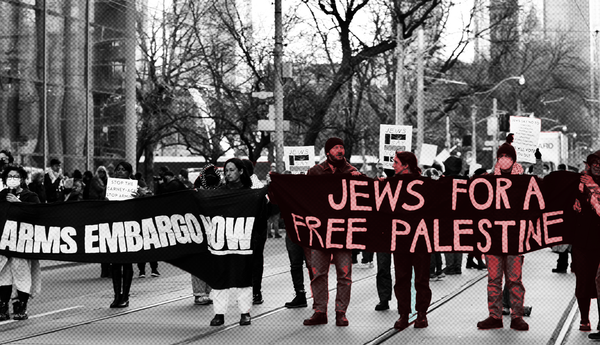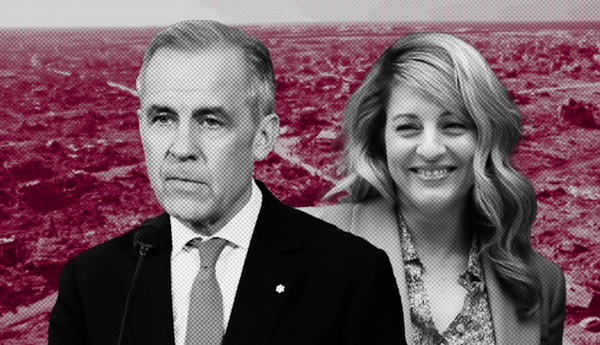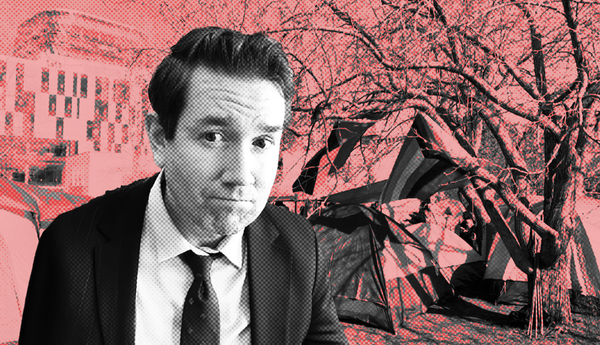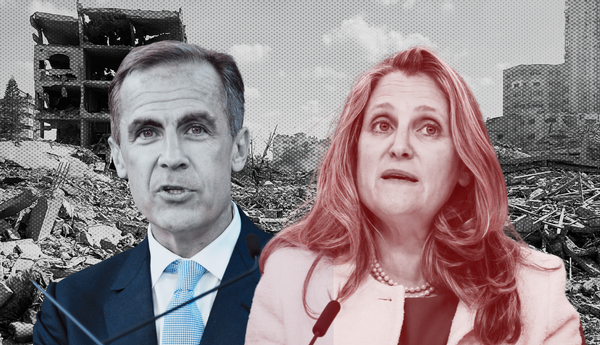Thousands of demonstrators marked the 100th day of Israel’s war on Gaza last weekend by rallying outside the Israeli consulate near the intersection of Yonge and Bloor streets in Toronto to demand an immediate ceasefire.
The protest came two weeks after South Africa submitted its case to the International Court of Justice (ICJ) accusing Israel of waging a genocide against Palestinians. The case, which echoes similar allegations made by numerous experts and investigators, calls on the ICJ to issue a provisional order that Israel immediately halt its attacks.
The large crowd marched through the streets of downtown Toronto with flags and banners condemning Israel’s ongoing occupation and calling on Israel to stop committing genocide in Gaza.
“For almost 100 days, Palestinians have been murdered by the Israeli war machine, and we are here to ask the Canadian government to end its complicity in this genocide, and we want an immediate and permanent ceasefire,” Dalia Awwad, one of the rally organizers and a member of the Palestinian Youth Movement, told The Maple.
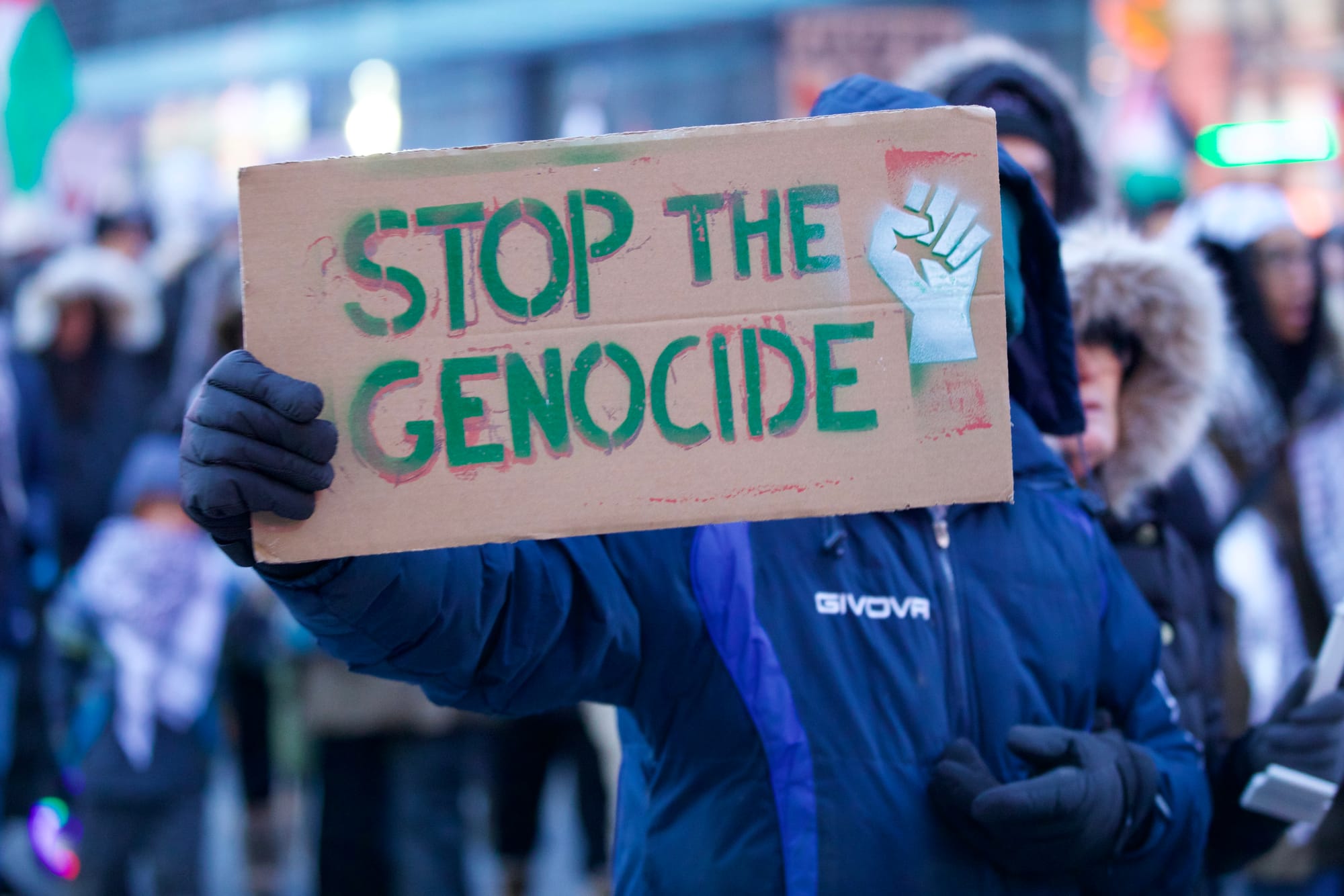
Pro-Palestinian organizations and their allies have been gathering at different locations in Toronto as well as in other cities across Canada since October 7.
“Folks have been coming out in masses across the globe and Toronto,” said Awwad. “We have seen [...] our Palestinian allies come out to mobilize against this genocide, and you see pressure on governments at every level, demanding that they end whatever role they have played in facilitating this genocide.”
Awwad added that people need to continue to put pressure on the Canadian government to demand an end to Israel’s attacks. Last month, Canada voted in favour of a non-binding UN General Assembly resolution calling for an immediate ceasefire, but Prime Minister Justin Trudeau recently stated that Canada does not necessarily “support the premise” of South Africa’s ICJ case against Israel.
Still, CBC’s Evan Dyer reported Monday that Global Affairs Canada (GAC) said it will abide by all the ICJ’s rulings in the case, including any provisional injunctions that call on Israel to stop its bombing campaign.
Since October 7, Israel has killed at least 24,100 Palestinians, and wounded more than 60,317 others, according to Gaza’s health ministry.
The bombing campaign followed a deadly surprise attack led by Hamas on Israel, which also saw more than 200 people taken hostage. The attack came in the context of what international experts and human rights monitors have long denounced as Israel’s brutal occupation of Gaza, where the situation was described as “unliveable” by a UN Special Rapporteur before Israel’s latest devastating attacks.
The South African government’s submission to the ICJ accuses Israel of committing the crime of genocide in Gaza in violation of the 1948 Genocide Convention, of which both South Africa and Israel are signatories.
Adila Hassim, a lawyer representing South Africa, presented to the court an 84-page document with supporting evidence for its allegations against Israel.
In addition to documenting the devastating scale of Israel’s destruction of civilian life and infrastructure in Gaza — including mass killing, bodily and mental harm, mass expulsions and displacement, depriving access to basic necessities and medical assistance, and preventing Palestinian births — the submission cites examples of alleged statements of genocidal intent by Israeli state and military officials.
The submission also places Israel’s acts of genocide “in the broader context of Israel’s conduct towards Palestinians during its 75-year-long apartheid, its 56-yearlong belligerent occupation of Palestinian territory and its 16-year-long blockade of Gaza, including the serious and ongoing violations of international law associated therewith.”
Israel rejects the allegations.
“South Africa’s position is a good example of the solidarity of nations,” said Awwad. “South Africa is a country that used to have apartheid for a long time, and South Africa taking substantive movements in the international community against the apartheid and genocide of the Palestinian people is historically significant.”
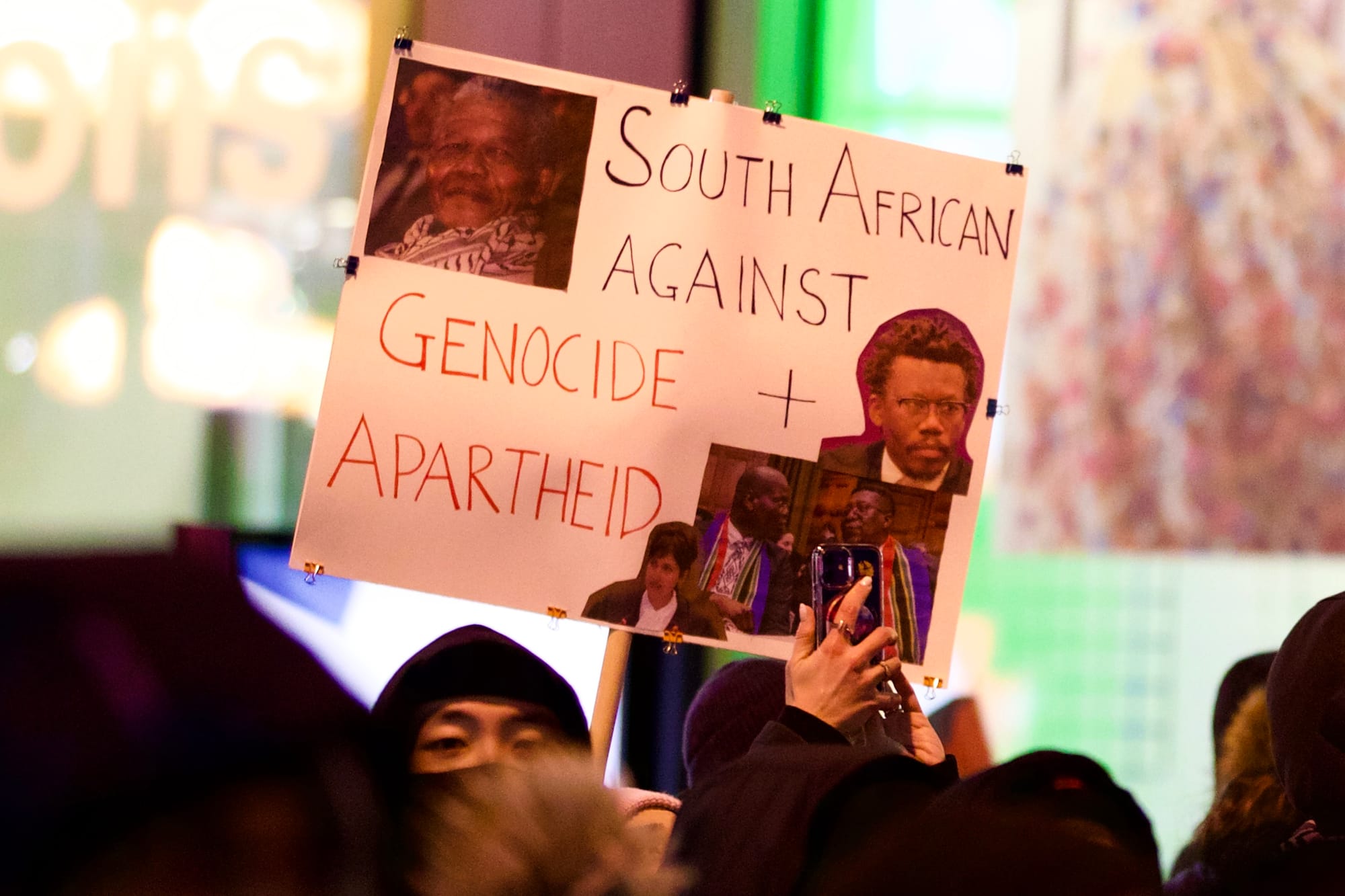
Some demonstrators took issue with the Canadian government’s remarks on South Africa’s case against Israel.
“The ironic thing is the Canadian government likes to talk about the fact that they supported the fight against apartheid in South Africa back in the 1980s, but now conditions for Palestine are very similar to the apartheid system in South Africa,” Miles Magner, a union activist and Ontario Public Service Employees Union (OPSEU) member, told The Maple.
“With the kind of military oppression that is going on, it is utter hypocrisy for the Canadian government to continue to back Israel, to soft-pedal the demands for a ceasefire and to not call them out for the actual war crimes that they are committing,” Magner added.
Awwad said that the position of the Canadian government has been “shameful.” She said Canada has denied the genocide claims and refused to see the evidence presented by Gazans before South Africa launched its case.
Protesters also criticized recent crackdowns against pro-Palestinian activists. On Saturday, Toronto police violently arrested three people protesting at the Avenue Road bridge, where police had banned protests.
“They are trying to intimidate people to make them afraid to stand up for human rights, to call a war crime a war crime and to call what Israel is doing a genocide,” Magner said.
Nur Dogan is a Turkish-Canadian freelance journalist and photojournalist who covers stories for New Canadian Media.



